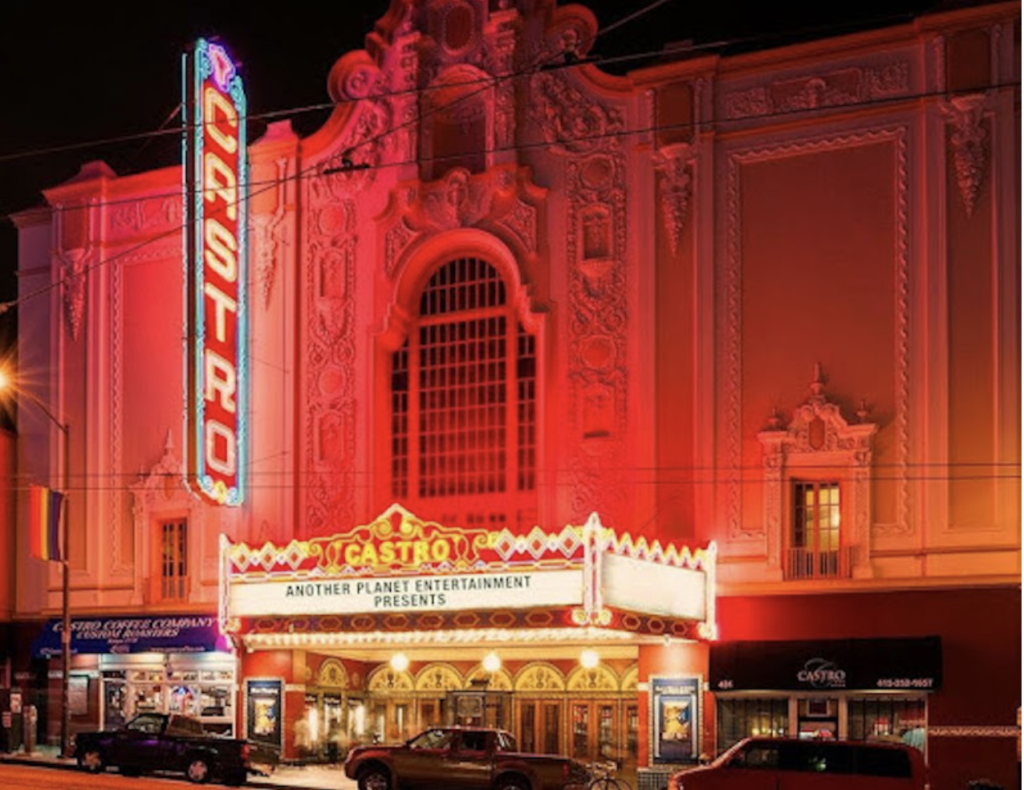Legislation that would landmark the interior of the Castro Theater, including the seats, is headed to the full Board of Supes, where we can expect plenty of lobbying and a close vote.
The Land Use and Transportation Committee voted 2-1 to approve the bill, with Sups. Dean Preston and Aaron Peskin in favor and Sup. Myrna Melgar in opposition.

Another Planet Entertainment, which has the lease on the property and wants to remove the orchestra seats and level the raked flooring to make room for a nightclub dance floor, has said that landmarking the seats would be a deal-breaker.
The company has promised to spend some $20 million on what everyone agrees are necessary upgrades and deferred maintenance. (Sup. Aaron Peskin said at a recent hearing that the company also promised to spend millions upgrading the Bill Graham Civic Auditorium, owned by the city, but that hasn’t happened.)
The Castro Theater Conservancy, a nonprofit, has offered an alternative plan, and members of that organization have told me they believe they can raise the money needed to do all the work that APE has promised to do—while still operating the theater as primarily a film venue.
Robert Byrne, president of the conservancy, said at the hearing today that the organization “has a viable plan that does not involve the removal of the seats.
Stephen Torres, executive co-chair of the Castro LGBTQ Historic District, said that in the 72 hours since a petition supporting the conservancy plan went live, “we’ve gathered 1,000 signatures.”
Preston said that “any of these plans will work with this proposed landmarking.”
There are venues that have full seating and are still used for live music—but that’s not APE’s vision or business plan at this point. Which raises an interesting question: If the seats are landmarked, and APE walks away, will the owners of the theater, the Nasser family, decide that a deal with the conservancy is better than nothing?
Or would APE decide that a venue with fixed seats is still a feasible alternative for a concert venue?
In previous hearings, supporters of APE said they were worried that the Castro could be torn down for housing, or become a gym. I don’t think the existing landmarking of the exterior would allow that (and certainly wouldn’t make it easy).
Melgar said that the amendment landmarking the seats “sets a precedent I don’t support.”
Public comment was short and limited, a huge change from past hearings on the issue, which have featured hours and hours of testimony.
But at this point, all the interested parties appear to have accepted that the legislation is going to the full board, probably in the next couple of weeks, and that’s where the final decision will be made.
“Based on the earlier vote at the land use committee this was no surprise,” David Perry, a spokesperson for APE, told me. “We look forward to being in front of the full board and appreciate the thoughtful consideration of all the supervisors.”
We know this much: Talks between the parties have gone almost nowhere. The supes will have to take a tough vote that is guaranteed to make some people unhappy.
GrowSF, a tech-driven organization with an agenda to get rid of progressives in SF politics, has become a player siding with APE.
Alex Tourk and Andrew Junius, powerhouse lobbyists representing APE, made $15,000 talking to the Mayor’s Office, the Planning Department and Sup. Rafael Mandelman about the theater in March, 2023, according to the Ethics Commission. The total for the past 12 moths: $61,000. There are no reported contacts for May—so far.






